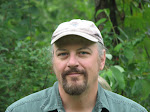After driving more than 1,500 miles over the last week - to Ohio and back - I’ve thought quite a bit about length and distance. And as the PR machine for Young Woman and the Sea, my bio of Trudy Ederle (aka Gertrude Ederle) , starts to fire up, I’ve recently done a couple of interviews about both the book and about writing which will soon appear. I’ll link to them when they do, but one of the interesting things about doing such interviews is that I occasionally get asked questions about the process of writing, which is something I usually don’t think too much about – until I do.
So I’ve been thinking about length. My experience is rather unique in that I've written poems, columns and non-fiction for both juvenile and adult audiences, and books that range from between 20,000 words and 250,000 words – from one hundred double-spaced typed pages to more than a thousand, for those who think in those terms. Different books, different audiences, topics and approaches require different lengths – but length isn’t the right term, really.
It is time. No matter the subject, I write as long as I need the reader's time to tell the story, so when I am done I feel done, with no unanswered questions or stray cats still roaming around in my brain. A book of several thousands of words needs to feel as finished and complete as a poem of only ten or fifteen words.
It is the same inside the book, with chapters. I’ve written chapters as small as 1,200 words or so and as long as 15,000 or more – whatever it takes to feel that they are complete and unified. I NEVER write a chapter to length just because I’m stuck on a number, although in most books most of my chapters fall within a range similar range.
I think of chapter breaks like big breaths, where you feel the need to pause, inhale, ponder and move on - and you have to be a reader here, as well as a writer. Be sensitive to when natural transitions occur - an event comes to a close, a conclusion is reached, a character experiences some kind of defining moment, there is a moment of quiet before action, or action before quiet, some contraction within the narrative.
Much of it is just learning to listen to your own work. I think it helps, when ending a chapter, to find a way to lift it off the page a bit, and cause the reader to reflect a little, just like the end of a long story or magazine piece, where the story turns back on itself a bit. Again, if you are just breaking off for the sake of breaking off, don't. And see if a lead for the following chapter comes easily. If it does, you're breaking it at the right place. But if you neither have an end, or a lead, then you simply might not be at the end of the chapter yet, or have already rushed past. Trust me, it gets easier the more you do it.
It sounds simplistic, but it really helps sometime to scattershot through your library just reading leads and ends to chapters, or the beginning and ends of magazine pieces, even the beginning and ends of poems. This can help you not only to brain storm your own transitions, but you’ll also realize that some writers you may like a great deal use the same strategies over and over. There is nothing wrong with that, if it works, but I must admit that ever since I did that to a writer who I had always admired and realized that nearly every story ended with a similar sensory impression, my admiration dropped just a little. So don't abandon your change up – try not to repeat yourself.
And use your outline as that - an outline - and not a dictator of length and chapter. Maybe I'm the outlier, but I've never worried for a second about abandoning the outline as I write, as long as I make sure I cover what I have promised to cover. For the writer I think the writing process is also a learning process - no matter how much I think I know beforehand, I don't make the really valuable connections until the act of writing takes place, and that can cause me to recast the rest of the book entirely.
One of the most lasting things I ever wrote came about when I was in the process of telling a small, familiar story that I expected to write quickly, but then I found one question that I didn't have an answer to, then another, then another, and I started looking for answers and all of a sudden not only did I have an entirely new chapter, but the information in that chapter informed the remainder of the book and provided a entire logic that wasn't there when I started writing, and that I didn't know was there in my research the whole time.
That's why you do this.
Subscribe to:
Post Comments (Atom)


No comments:
Post a Comment